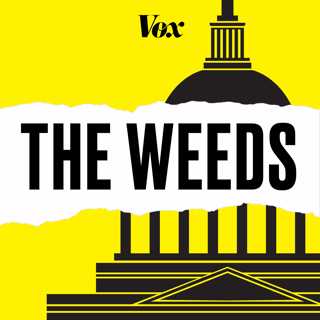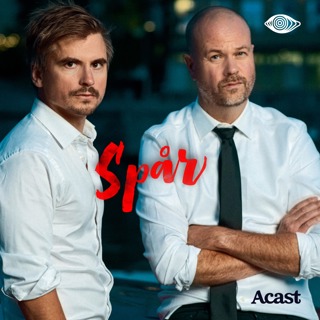
Abortion and the erosion of privacy
Since the Dobbs decision almost two years ago, reproductive rights have been at the center of our national consciousness. Two of the latest headlines come from Florida and Arizona: a six-week abortion ban, and a total abortion ban unless the life of the pregnant person is threatened, respectively. Both states have constitutions that name-check privacy rights, but both courts found that those rights don’t extend to abortion. What does privacy look like in the United States, and do we still have it in a post-Dobbs world? Read more: Do Americans still have a right to privacy? Submit your policy questions! We want to know what you’re curious about. Credits: Jonquilyn Hill, host Sofi LaLonde, producer Patrick Boyd, engineer A.M. Hall, editorial director of talk podcasts Want to support The Weeds? Please consider making a donation to Vox: bit.ly/givepodcasts Please take a second to help us learn more about you! vox.com/podcastsurvey Learn more about your ad choices. Visit podcastchoices.com/adchoices
10 Apr 202439min

What is “fetal personhood”?
Earlier this year, the Alabama Supreme Court ruled frozen embryos have the same rights as children. The decision sent shockwaves throughout Alabama and raised serious questions about the future of IVF in the United States. While the Alabama legislature has since passed legislation protecting IVF in the state, that doesn’t address the big question behind the court’s decision: What does personhood mean, and what does it mean for the anti-abortion movement? Read More: Fetal personhood laws, explained - Vox Alabama’s Supreme Court IVF ruling is a warning to the country - Vox Opinion | The Anti-Abortion Movement Is Gunning for Fetal Personhood - The New York Times How America’s Two Abortion Realities Are Clashing - The New York Times Submit your policy questions! We want to know what you’re curious about. Credits: Jonquilyn Hill, host Sofi LaLonde, producer Cristian Ayala, engineer A.M. Hall, editorial director of talk podcasts Want to support The Weeds? Please consider making a donation to Vox: bit.ly/givepodcasts Learn more about your ad choices. Visit podcastchoices.com/adchoices
3 Apr 202436min

A safety net’s poverty trap
What if you weren’t allowed to have more than $2,000 at any given time? Could you make it work? For people who receive Supplemental Security Income, this isn’t a what-if — it’s reality. SSI beneficiaries are subject to strict requirements and risk losing their benefits if they have more than $2,000 in financial assets, even if they exceed that by just a dollar. Why is the limit so low, and is anything being done to fix it? That’s today on The Weeds. Read More: Tyler (@tylerlimaroope) | TikTok The Case for Updating SSI Asset Limits | Center on Budget and Policy Priorities Submit your policy questions! We want to know what you’re curious about. Credits: Jonquilyn Hill, host Sofi LaLonde, producer Cristian Ayala, engineer A.M. Hall, editorial director of talk podcasts Want to support The Weeds? Please consider making a donation to Vox: bit.ly/givepodcasts Learn more about your ad choices. Visit podcastchoices.com/adchoices
27 Mars 202434min

Let’s fix child care together
America is in the midst of a child care crisis. The cost of child care has skyrocketed to the point where, in some states, caring for kids in pre-k is more expensive than college tuition or a home mortgage. According to economist Kathryn Anne Edwards, it’s a market failure. So how do we fix it? That’s in today’s installment of our series exploring economic fanfiction and the stories we should be covering this election year. Read More: Kathryn's plan to fix child care Submit your policy questions! We want to know what you’re curious about. Credits: Jonquilyn Hill, host Sofi LaLonde, producer Rob Byers, engineer A.M. Hall, editorial director of talk podcasts Want to support The Weeds? Please consider making a donation to Vox: bit.ly/givepodcasts Learn more about your ad choices. Visit podcastchoices.com/adchoices
20 Mars 202443min

Bringing back the SAT
Four years after a pandemic pause, some colleges and universities are again requiring applicants to submit standardized test scores. Inside Higher Ed’s Liam Knox and the University of Delaware’s Dominique Baker explain. This episode of Today, Explained was produced by Avishay Artsy, edited by Matt Collette, fact-checked by Laura Bullard, engineered by Rob Byers, and guest-hosted by Jonquilyn Hill. It originally ran on March 8th, 2024. Transcript at vox.com/todayexplained Learn more about your ad choices. Visit podcastchoices.com/adchoices
13 Mars 202425min

The AI election
2024 is a big year for elections, not just in the US but globally: More than 50 countries will be holding elections this year. With rampant disinformation and polarization in politics, fast-moving technologies like AI pose a unique threat to democracy. On a scale from 1–10, how worried should we be about AI and the election? Host Jonquilyn Hill talks to New York Times reporter Tiffany Hsu to find out. Learn More: The Black Box: Even AI's creators don't understand it - Unexplainable Test Yourself: Which Faces Were Made by A.I.? - New York Times In Big Election Year, A.I.’s Architects Move Against Its Misuse - New York Times Submit your policy questions! We want to know what you’re curious about. Credits: Jonquilyn Hill, host Sofi LaLonde, producer Cristian Ayala, engineer A.M. Hall, editorial director of talk podcasts Want to support The Weeds? Please consider making a donation to Vox: bit.ly/givepodcasts Learn more about your ad choices. Visit podcastchoices.com/adchoices
6 Mars 202441min

How racism ages Black people
There are a host of health disparities across the racial divide. Black people are more likely to develop chronic diseases like diabetes and heart disease. Black people are also more likely to be diagnosed with fibroids or die from pregnancy complications. One of the factors in these disparities could be a phenomenon known as weathering — the stress of racism literally aging Black people’s bodies at a faster rate. Host Jonquilyn Hill discusses this with Dr. Uché Blackstock, the founder and CEO of Advancing Health Equity and the author of Legacy: A Black Physician Reckons with Racism in Medicine. Read More: Legacy: A Black Physician Reckons with Racism in Medicine by Uché Blackstock Weathering: The Extraordinary Stress of Ordinary Life in an Unjust Society by Arline T. Geronimus Health in Her HUE Irth App Advancing Health Equity Submit your policy questions! We want to know what you’re curious about. Credits: Jonquilyn Hill, host Sofi LaLonde, producer Cristian Ayala, engineer A.M. Hall, editorial director of talk podcasts Want to support The Weeds? Please consider making a donation to Vox: bit.ly/givepodcasts Learn more about your ad choices. Visit podcastchoices.com/adchoices
21 Feb 202437min





















